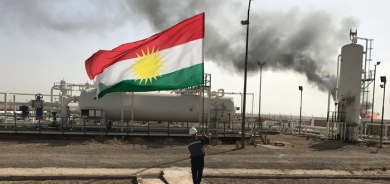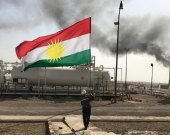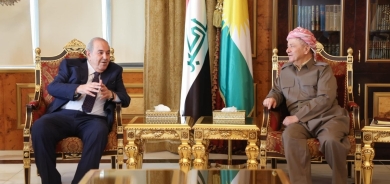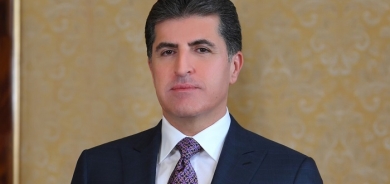Drought conditions threaten Kurdistan’s rice cultivation as rain remains scarce

Water from irrigation projects in the area may not be enough to save this year’s harvest, especially as the Kurdistan Regional Government has declared 2021 a “year of drought,” and are preparing a plan to confront the lack of rainfall.
The drought could bring about one of the worst rice crops in years.
"Last year there was a lot of water, and our crops were good, but this year is different," Salim Mohammad, a farmer in the Harir and Batas Plain, told Kurdistan 24.
"We expect a small harvest due to the lack of rain," he added.
Iraq in general, and the Kurdistan Region in particular, are facing great challenges this year due to the scarcity of rain and the failure to resolve the international water issue with neighboring countries.
Previously, the Water Resources Committee in the Kurdistan Regional Parliament called on the federal government to compensate farmers in a bid to ease the damage caused by the lack of rain and dam projects of upstream countries like Iran and Turkey.
The effects of the drought in Iraq are further complicated by Turkey's decision to fill a giant dam on the Euphrates river.
About 70 percent of Iraqi water resources flow from neighboring countries, and the Tigris and Euphrates rivers, whose sources are in Turkey, are of particular importance.
Fariq Hassan, head of the agricultural department in the town of Harir, a suburb of Erbil, told Kurdistan 24 that "signs of drought have already appeared in our area."
He added that low water levels in rivers and springs pose a great danger to crops, especially rice, pointing out that the rice production could decrease by 30 to 35 percent in the Harir and Batas area. Available data show that this area produced over 700 tons of quality rice last year.
But the drought will not only affect the rice crop, but will also seriously damage other agriculture, including wheat and barley, and affect the tourism, industrial and economic sectors in general.
The post-2014 financial crisis complicated the efforts of the KRG to establish dams to store water, but the authorities have begun the initial search for alternatives to cope with the drought.
At a meeting late last month, the Region’s Council of Ministers discussed the issue of drought and put forward a set of proposals to form a comprehensive plan.
Editing by Joanne Stocker-Kelly















